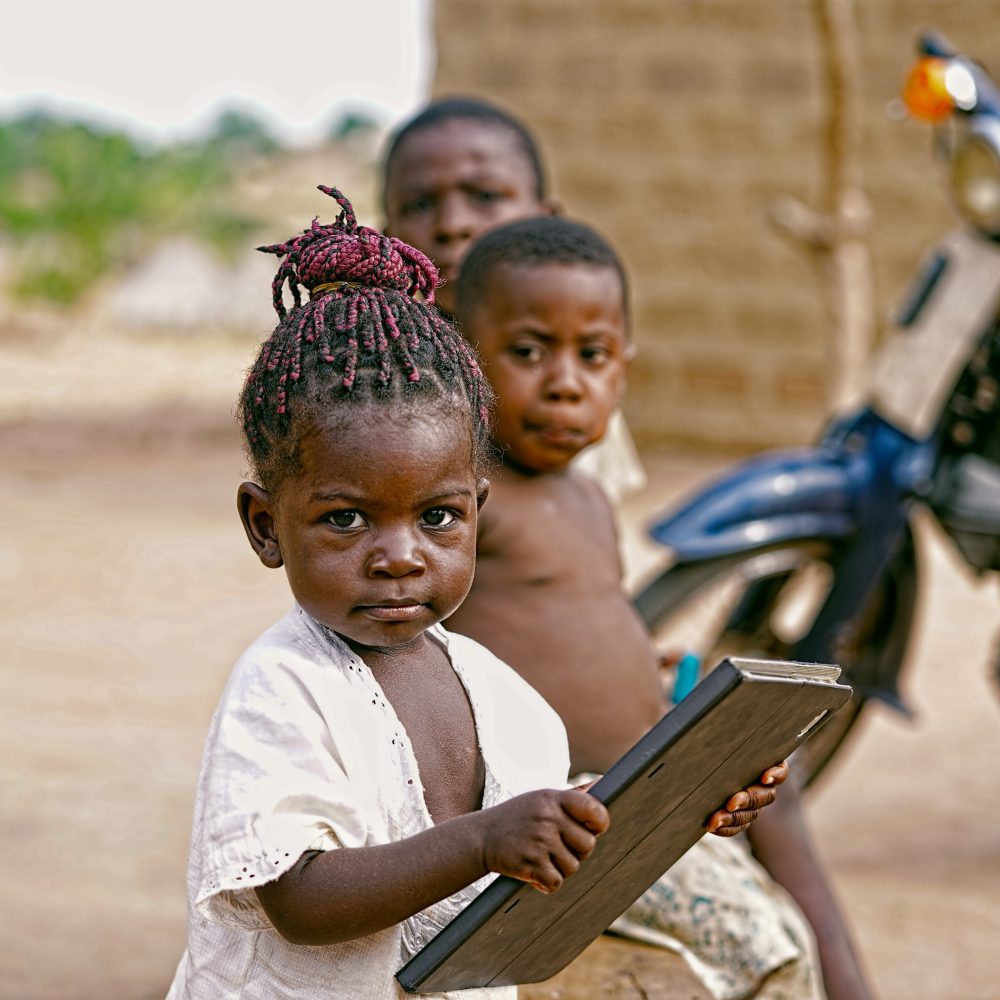A25. Empowering female teachers in natural sciences
in Burkina Faso
Context
The role of women is essential in the fight for development at the national level and in a context of global sustainable development. Today more than ever, our societies need all intelligences to promote development. To hold their place in our rapidly changing societies, women need to create conditions conducive to the awareness of their abilities and to bring society to change their vision vis-à-vis their capacity of participation. Despite the efforts made by the states in the implementation of gender policy, it is clear that the place given to women in the construction of society remains weak. Individual female skills internationally are recognized. Indeed, the school enrollment rate of girls in Burkina Faso (27%), the number of women scientists in research structures (8%) and in public higher education about 10 % are an illustration of this. In addition, the orientation of girls to study natural sciences (physics-chemistry-mathematics) and high-level technical careers remains marginal. Some women associations join forces and are working for a greater interest of women and girls in science and technology. In addition to this challenge in Burkina Faso, like many countries in Africa, high pregnancy rates in schools of girls is a silent pain that causes a lot of bitterness. According to the World Health Organization (WHO), 80 million school-age pregnancies occur each year in developing countries.
According to the Ministry of National Education (MENA) in Burkina Faso about 2,295 cases of school-age pregnancies, were observed in 2014 throughout the country. The reasons for this growing rate of school-based pregnancies are many and varied: socio-cultural factors (early and forced marriages, irresponsibility of parents, weak ability to talk about sexuality, depravation of morals, sexual, the influence of bad company, prostitution), inadequacy of reception centers for girls. Also economic factors explain the situation: poverty and misery. The consequences of early pregnancies are numerous: illegal abortions, school dropouts, exclusion from the family, child abandonment, infanticide, family conflicts, marginalization, social exclusion, increase in family expenses, prostitution, and psychological shock, loss of dignity or honor, banishment…

Some girls arrived by their great effort to reach high education level and it will be very good to support them to have a successful study.
One of the strategic objectives of Burkina Faso’s National Economic and Social Development Plan is to increase supply and improve the quality of education, higher education and training in line with the needs of the economy. It aims to achieve SDG 5: achieve gender equality and empower all women and girls.
Status report May 2020
Professor Yvonne Bonzi-Coulibaly has a dream
– to ensure that twenty women become teachers in chemistry, physics and mathematics in Burkina Faso. To reach this goals, she provides support to women who are studying to become teachers in natural sciences subjects.
Institut Des Sciences (IDS) is a public higher education institution in charge of providing training in chemistry, physics and mathematics to future school teachers in in Burkina Faso. Many prospective teachers are mothers and have no facility at home to look for their kids, so they bring their cildren to school. They often also bring girls about 8 to 12 years old as babysitter. In Burkina Faso, like many other countries in Africa, high pregnancy rates prevents girls for finishing their education. When Professor Yvonne Bonzi-Coulibaly became Director of IDS she wanted start a programme offering child-care to the female students so that they can focus better on their studies. The long-term purpose of this program is to see the amount of women becoming teachers in chemistry, physics and mathematics increase in Burkina Faso.
Professor Yvonne Bonzi Coulibali, Action10 and HR&S have been collaborating to formulate a financially sustainable programme approch provding the user driven social good targeted. When Professor Yvonne Bonzi Coulibali assignement as director was concluded, she decided to continue her initiative closer to the villages.
HR&S Action10 decided to seek other opportunities to address user driven social good tageting women empowerment in Burkina Faso.
About Professor Bonzi-Coulibaly Yvonne
Professor Bonzi-Coulibaly Yvonne, the General Director of Institute Des Sciences (IDS) institute during 2018 and 2019. Pr Bonzi is the 2013 recipient of the African Union’s Kwame N’krumah Science Prize for Women – “Basic Science, Technology and Innovation”. Her contribution to gender equity has been made within the Association of Women Scientists of Burkina since 1988, within the Chair Women Sciences, Societies and Development creates 2000 at the University of Ouagadougou and via its testimonials model of as well as during her seminars and research themes.

About IDS
IDS a public higher education institution in charge of academic formation of future teachers in Sciences (mathematics, physics, chemistry, and biology) in Burkina Faso schools. The students have courses during three years at the institute and spend one year in real school for training. These professors will be in contact with scholars and present future agents of sensitisation throughout Burkina Faso as they will be in contact with girls in their classrooms. About 20 teachers are mothers and have no facility at home to look for their kids. They come each day to the institute with their child or baby with a girl about eight to 12 years old as babysitter. The kids and the babysitter need all some safe place at the institute and a senior women as supervisor to give advices all the day will be very useful.
